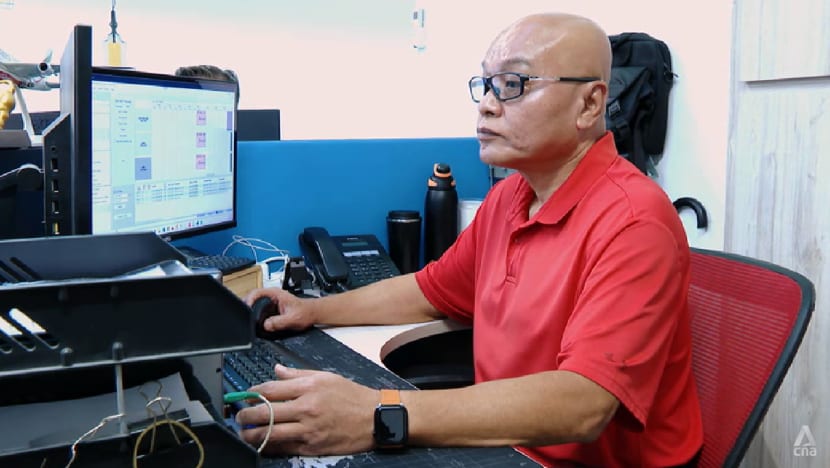More support beyond wage credits, job redesign grants needed to transform workforce: Firms
A slew of measures to help businesses transform their workforce and boost productivity were announced in this year’s Budget last week.

Operations manager Richard Lee believes job redesign efforts can help make better use of his time at work, so he can focus on other tasks and find new ways to improve on operations.

This audio is generated by an AI tool.
SINGAPORE: Companies are calling for simpler processes to access grant funding and more training for workers, even as they welcome extended wage credits and a grant to help fund job redesign activities.
A slew of measures to help businesses transform their workforce and boost productivity were announced by Prime Minister and Finance Minister Lawrence Wong in his Budget speech on Tuesday (Feb 18).
These include enhancements to the Progressive Wage Credit Scheme, which co-funds eligible wage increases for lower-wage workers as they upskill.
The government will increase its co-funding level to 40 per cent this year, up from 30 per cent. Next year, this will be 20 per cent, up from 15 per cent.
STAYING COMPETITIVE
To help businesses upskill their workforce, a new SkillsFuture Workforce Development Grant will consolidate existing schemes administered by Workforce Singapore and SkillsFuture Singapore.
Apart from simplifying the application process for companies, the grant will provide higher funding support of up to 70 per cent for job redesign activities.
For freight forwarder Union Air Freight, moving from manual to digital operations has helped keep them competitive.
“Freight forwarding is a very competitive industry, and technology changes all the time, so we also have to keep pace with the changes,” said Mr Tan Liang Jian, managing director at Union Air Freight.
“In the past, a lot of our roles were very paper-based, very manual,” he noted.
“After the redesign and also with the customisation of our software, things are a lot more automated, and that frees up a lot of time for our team to focus more on communicating, talking to customers and other departments.”
But for some employees such as 62-year-old Richard Lee, the shift could be challenging.
“We have to go for training if we need to, and the (simpler) it is, the better,” said the operations manager.
He added that he believes job redesign efforts can help make better use of his time at work, so he can focus on other tasks and find new ways to improve on operations.
To help more seniors stay employed, the Senior Employment Credit - which provides wage offsets to employers that hire Singaporean workers aged 60 and above, and are earning less than S$4,000 (US$2,995) a month - will also be extended to end-2026.
NEED FOR SIMPLER PROCESSES
Another scheme to boost employability of certain vulnerable groups, such as those with disabilities, will be extended till the end of 2028.
The Enabling Employment Credit provides wage support of up to 20 per cent for workers with disabilities earning below S$4,000 a month, capped at S$400 for each employee.
Mr Kung Teong Wah, general manager of Parkroyal Collection Pickering, said these schemes can help encourage organisations to create more roles for this group. The hotel employs those with disabilities in both frontline and backend operations.
Even with the support measures, the Association of Small and Medium Enterprises (ASME) told CNA that there is a need to ensure smaller firms have clarity and know how to access help.
“Sometimes, the challenge is around the flexibility and the applicability of the grant when it comes to the executional phases,” said ASME president Ang Yuit, who stressed the need for simple processes.
“So (making the application process) simpler and easier, so that you can make it open to more people to access,” he added.
“(Also, for) the reimbursement that comes back in or the grant support that comes back, if that process can be sped up, that will make a big difference to people deciding whether to take it up.”
















